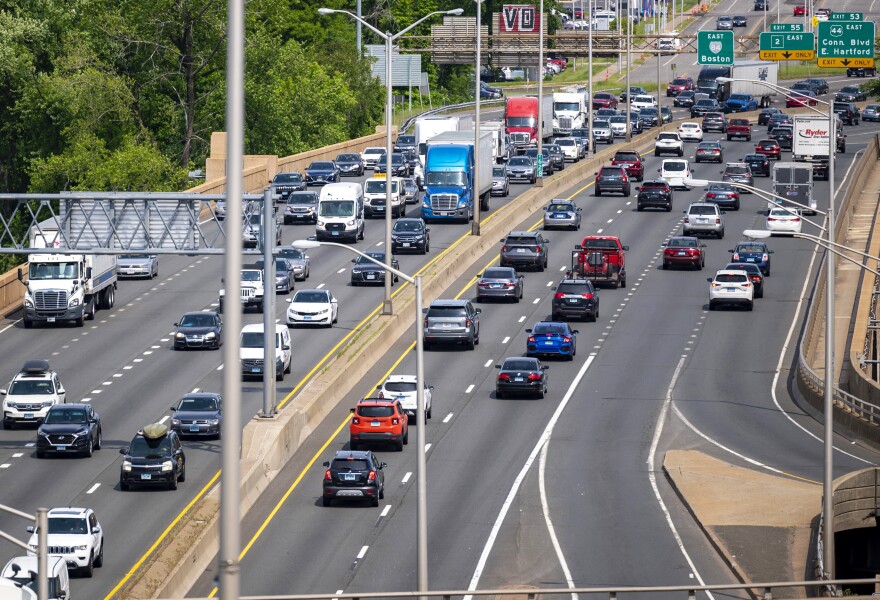Emissions from Connecticut’s two largest sources of climate pollution - transportation and buildings - declined in 2023, according to a new report from the Department of Energy and Environmental Protection.
The findings come amid a proposed effort by the Trump administration to roll back climate regulations. The year-over-year drop also comes as Connecticut continues to lag its overall goal of reducing greenhouse gas emissions in 2030 by 45% of its 2001 emission levels.
In Connecticut’s transportation sector, emissions caused by vehicles burning fossil fuels declined by 2% in 2023, the first time since the COVID-19 pandemic.
The emission reduction happened despite a slight uptick in miles traveled from 2022 to 2023, which the study said was driven primarily by higher fuel-efficiency standards in vehicles. An increase in the number of electric vehicles registered in Connecticut also contributed to the reduction, but was not a significant factor, according to the report.
Emissions from residential buildings, caused primarily by heating homes, but also heating water and cooking, declined by 5.6%. The report suggests the reduction was due to a milder winter in 2023, which saw less need for home heating.
Dr. David Hill, a pulmonologist in Waterbury and chair of the American Lung Association National Board, said the reductions will help people with asthma and other lung diseases made worse by air pollution, but that other states also need to reduce emissions for Connecticut’s air quality to improve.
“We get a lot of pollution in Connecticut because the jet stream carries pollution from the Midwest to us,” Hill said. “We need to see similar reductions being made in every state, because, again, the air pollution doesn't follow state borders, but any reductions we make are a positive.”
The news comes as the Environmental Protection Agency is proposing to rescind the 2009 Endangerment Finding, which led to the regulation of greenhouse gas emissions from motor vehicles, power plants and other sources of pollution under the Clean Air Act.
“As we celebrate this progress in reducing emissions, we are concerned that recent actions by the EPA to roll back power plant regulations, vehicle fuel economy standards, and even the Endangerment Finding, will remove critical federal tools that contributed to this progress,” said Katie Dykes, commissioner for the Department of Energy and Environmental Protection, in a statement.
Áine Pennello is a Report for America corps member who covers the environment and climate change for Connecticut Public.





